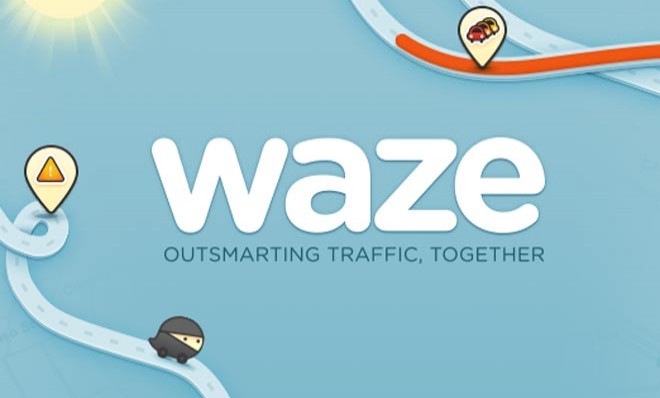Why Waze is worth $1.3 billion to Google
Imagine if Google Maps could help you outsmart traffic in real-time

A free daily email with the biggest news stories of the day – and the best features from TheWeek.com
You are now subscribed
Your newsletter sign-up was successful
In the Game of Maps (you know, the ongoing war between tech giants for world dominance in mapping), Google may be nearing a huge win. Israeli publication Globes says the search giant is about to close a deal to buy Waze, a relatively small Israeli company with a mapping app that crowd-sources user data for up-to-the-minute traffic information. The price would be about $1.3 billion, topping Facebook's rumored $1 billion attempt, and making it the fourth largest Google acquisition to date.
Waze continually collects GPS data from its roughly 45 million users' phones, helping them "outsmart traffic" and find "the best route to work and back, every day," says the company's website. Users can edit maps in real-time, warning other drivers about traffic accidents, and sharing gas prices and locations of speed-sensing cameras.
Waze, with about 100 employees in Israel and Palo Alto, Calif., is still relatively small, and has yet to generate a reliable revenue stream. So why might Google, already the King of Maps, spend over a billion to own it?
The Week
Escape your echo chamber. Get the facts behind the news, plus analysis from multiple perspectives.

Sign up for The Week's Free Newsletters
From our morning news briefing to a weekly Good News Newsletter, get the best of The Week delivered directly to your inbox.
From our morning news briefing to a weekly Good News Newsletter, get the best of The Week delivered directly to your inbox.
First, to defend its throne. Though Google Maps is dominant, Waze is the world's "fastest-growing community-based traffic navigation app," says its website. And it's expanding quickly, with 45 million users spread across 190 countries, many in developing regions like Southeast Asia and Latin America. Additionally, the "'social' component differentiates Waze from the leading mobile map apps, which happen to come from Google and Apple," says TIME. In buying the competition, Google would be also stamping it out.
Second, to defeat its competitors, Facebook and Apple, both of which were recently eyeing Waze. Apple, which introduced the widely ridiculed Apple Maps for iPhones and iPads last year, already uses Waze data to update traffic information. Whether that relationship will continue after a Google acquisition is unclear, but the deal "underscores the growing importance of mapping in the battle for consumer loyalty to mobile devices," says The Wall Street Journal. TechCrunch explains:
See, Facebook, Apple, Microsoft, and any other big tech player will be focusing on location technology as a way to bolster other services. Maps is the spinal cord of the mobile ecosystem. It affects advertising, other social tools and apps, and e-commerce. Apple, Facebook and friends won't give up on owning our location data anytime soon, but Google is doing a good job of blocking out the potential to buy technology instead of build it. [Tech Crunch]
Still, the deal isn't sealed. Because Google Maps is already massive, the acquisition may bump up against anti-trust regulators, who could force Google Maps and Waze to remain separate apps. But they'd still be able to share data, and with Google Maps' size and Waze's user-updates, Google Maps could grow into a kind of giant, ever-evolving Wikipedia of traffic maps (and win the Game of Maps, of course).
A free daily email with the biggest news stories of the day – and the best features from TheWeek.com
Carmel Lobello is the business editor at TheWeek.com. Previously, she was an editor at DeathandTaxesMag.com.